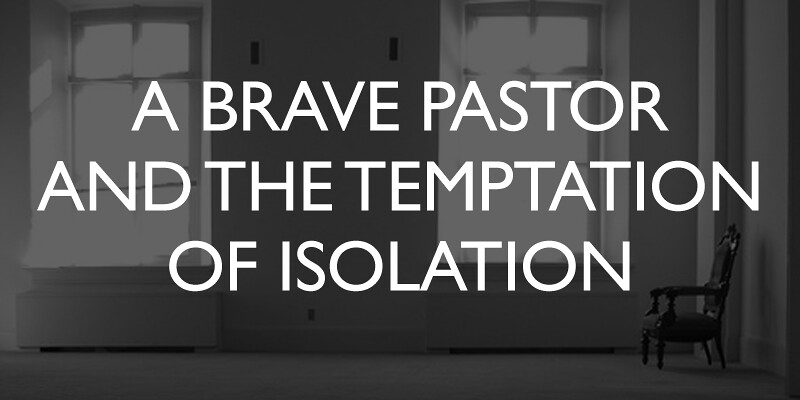
“I’d give it all for one good friend.”
– Howard Hughes when asked about his wealth of 4 billion dollars
At a pastors’ retreat this summer I had lunch with one of my church planter friends who wanted some counsel. Throughout the conversation he admitted to struggling personally, emotionally, and ministerially. I really felt for him because I was walking through a fairly tough year myself. Indeed, it was the reason he wanted to chat specifically with me. Early in the course of our conversation I asked, “Do you have any friends there?” Almost immediately he soberly replied, “No. I don’t have any friends here. I’m incredibly lonely.” He knew exactly what I was asking. He knew I wasn’t referring to amiable people in his neighborhood or even welcoming members of his church. He knew I asked if he had solid, deep, transparent friends around him that he could confide in, trust, and lean upon. The reason I asked about his close friendships isn’t because the lack of them was the cause of his struggles but because good friends greatly blunt the great struggles many pastors experience in ministry.
Friendships are God’s way of giving us emotional safety nets. They are really gifts of grace to us by Jesus. Proverbs 18:24 tells us, “A man of many companions may come to ruin, but there is a friend who sticks closer than a brother.” and Proverbs 27:17 reads, “Iron sharpens iron, and one man sharpens another.” It’s pretty clear that we can have friends – I mean really close friends who are as close as family – friends who make us better, friends who sharpen us. I call these kinds of friends someone’s Core relationships . They are the inner circle of relationships surrounded by the outer circles of Friends then Acquaintances. The Core are those who know your soul, your secrets, your struggles. You trust they would do anything for you. These are the people you’d give your kids if something happened to you. They’re like family, “closer than a brother.”
But they are hard to come by, especially if you are a pastor. Add on, for many, the already lonely venture of planting a church and you’ve got the recipe for some serious relational challenges. While it’s hard not to sound self-serving about this, the truth is that no one knows what it’s like to sit in your seat. To feel the weight of responsibility, the unceasing pressure of the task, the demands of being “on” as pastor 24 hrs/day, and a thousand other things that come with the role.
Consequently, the temptation is to run to isolation and hide ourselves away emotionally. We put on masks affixed with smiles and utter pleasant words which lead people to think we never struggle in ministry. The idea is that our lack of transparency in the present will save us greater grief in the future. We don’t want our congregants to think wrongly of us, that we’re incompetent to the task of pastoring when the truth is pastoring is incredibly taxing on us in more ways that we can innumerate. But the illusion of isolation is you think you’re protecting yourself when, in reality, you’re making yourself more vulnerable to the enemy’s attack. The hole only gets deeper, the loneliness redoubles, and our hearts shrink inwardly from all the things we love. Even worse, some turn to medicating their situations with things like food, drink, or even porn. This is the true product of isolation.
Brave pastors are intentional at cultivating friendships.
Brave pastors find men who can understand them, meet them where they are, and schedule time with them. Often they are other guys in ministry who know the unique challenges that pastoring a church brings. (This goes true for their wives as well). In other words, they “get it” because you share the same iron of pastoring. Having these kind of Core friendships are ways we come up for air when we’ve been swimming in the depths of ministry. They help release tension by talking over coffee, spending time in prayer together, or simply having a good time with them in someplace fun. These are the guys who know your junk, your hangups, your failures and still love you. They can encourage you but also call you out when needed.
Brave pastors intentionally cultivate friendships in order to fight the temptation of isolation. I’ve tried to it. It’s saved me more times than I’d like to admit. How isolated are you? Who knows your junk? Don’t commit the sin of poor stewardship for not developing a Core. Your health, your family, and your ministry depend on it. Leverage the grace of friendships so that you might pastor for the long haul. That’s what brave pastors do.
